How will the environmental forces (technological, global, economic, social, etc.) affect and lead changes in the HRIS field in the10 to 20 years?
- The change in the roles and responsibility of the HR professional.
- An increase in the outsourcing of HR functions.
- The impacts associated with technology (Ceriello & Freeman,1998).
- Talent management in terms of leadership and development (Kavanagh & Thite,2009).
- Impacts associated with legal and compliance issues.
Technological factors:
- Changes in technology has the potential of increasing the efficiency of HRIS systems, which in turn increases the need for creativity and innovation among HRIS professionals.
- Change in skill requirements can also complicate the task of recruitment since it poses the need for HRIS systems to constantly meet the needs of changing skills requirements.
The global business environment is changing in terms of technology, economy and global regulatory frameworks. this changes impose significant impacts on the HRIS field (Ceriello & Freeman,1998).
The role and responsibilities of the HR professional must widen to include other business aspects in order to ensure that HR practices are effective and make significant contributions towards building the competitive advantage of the organization. The basic argument is that the one-size fits all will not be appropriate in the HRIS field in the coming 10 to 20 years.
The expectation from HRIS professionals is bound to change since HR professionals will be expected to show skills in talent management, change management and other organizational management skill requirements. With the diversification of HR, outsourcing of HR functions will increase since companies are aiming at reducing costs, regulatory compliance and accessing the best technologies.
With regard to the impacts of technology, it is bound to eliminate numerous HRIS jobs implying that HRIS professionals must become more strategic. Technology has the capability of reinforcing employee relationships and ensuring adequate data security and privacy.
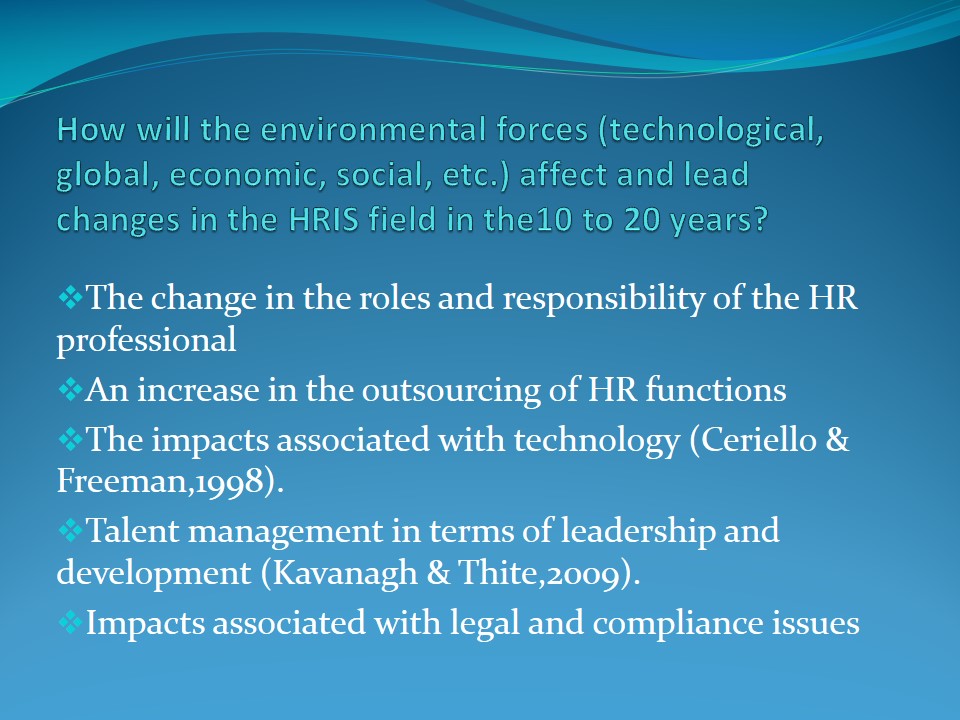
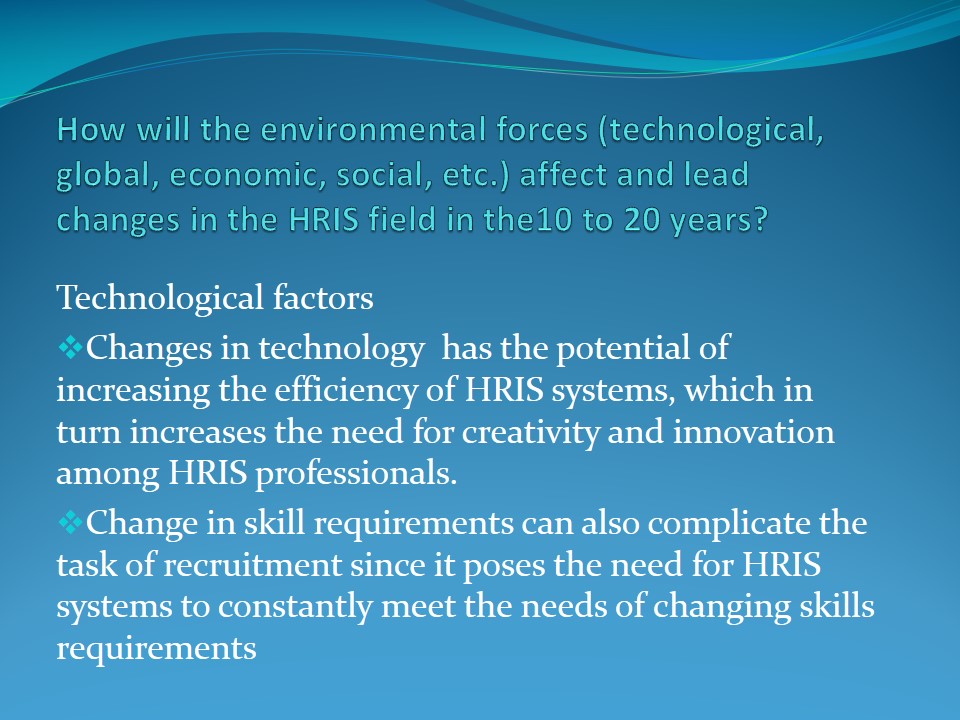
How will changes in staffing, training, performance management, and legal compliance affect HRIS?
- At present, regulatory and legislative requirements place emphasis on data privacy and security, corporate governance and an increase in consumer concerns regarding the privacy and security of their data.
- Privacy laws have the potential of affecting the manner in which HR departments interacts with the employees.
The impact of privacy laws include:
- The establishment of employee privacy policies.
- The creation of more stringent rules on data held by the HR.
- Increased restrictions regarding the access of HR data.
- Increasing restriction on background checks and references.
- Employees can access their own data with minimal restrictions.
Changes in staffing are imposed by the impacts of technology on the HR field. Technology serves to replace the role of HRIS professionals, resulting in fewer HRIS practicing professionals.
Change in staffing and training will impose the need to employee relationship management because of the focus on employee self service (Walker, 2001).
Increasing cases of poor corporate governance and concerns relating to data security and privacy has resulted in the establishment of regulatory and interventionist governments that affect numerous aspects of the business including privacy.
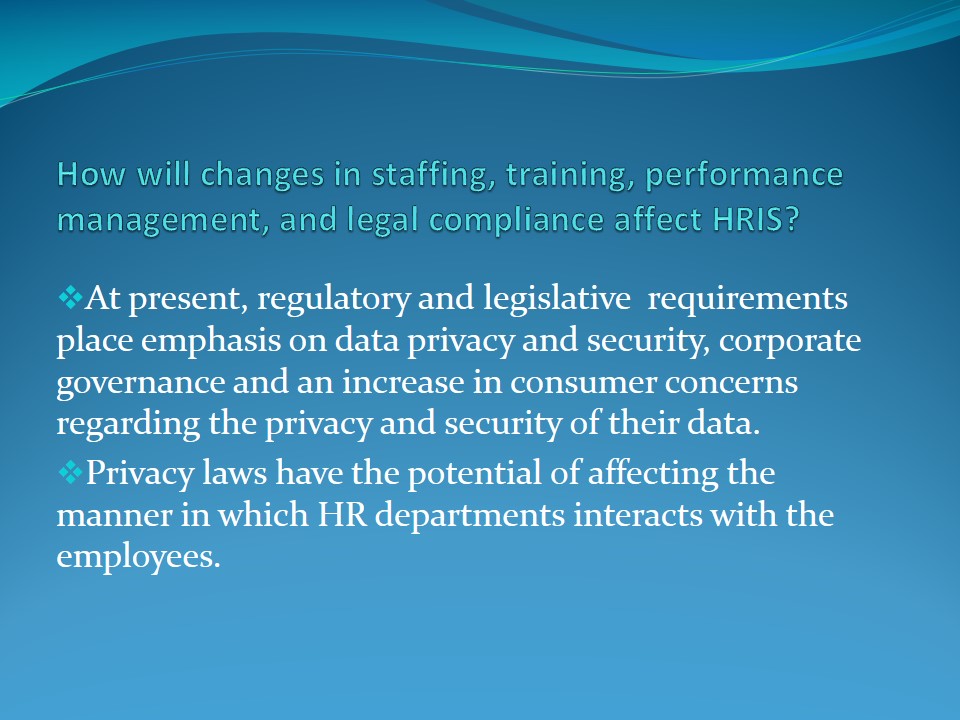
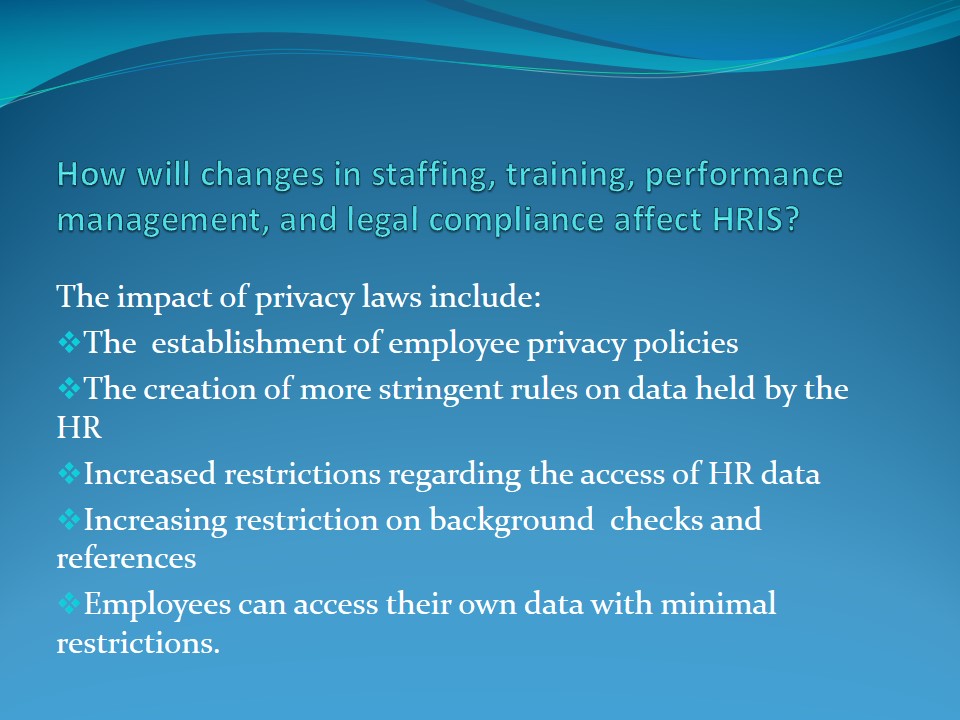
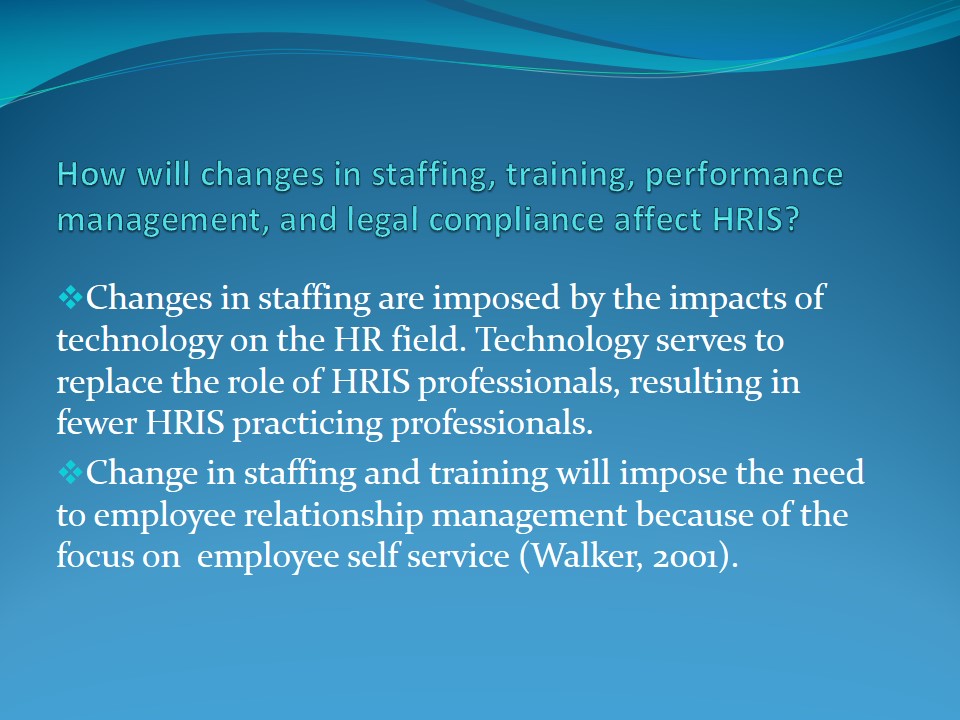
Analyze implications of HRIS confidentiality and data security risks in terms of procedural, technical, and physical controls
- Employee right to privacy.
- Management information.
- Larger restriction.
Employee right to privacy: the use of an electronic system makes it easy to generate lists and share data, which results in a breach of privacy and confidentiality. The company policy should therefore define what constitutes confidential data.
Management information: organizations usually want to be silent regarding their affairs due to increasing global competition.
The primary objective of automation includes the ability to result in efficient information management but guarantee data privacy and confidentiality.
Management information. Businesses generally want to be close-mouthed about their affairs because of competition and actions management is considering.
Legal restrictions indicate the restrictions and rights of employees and HR to access data.
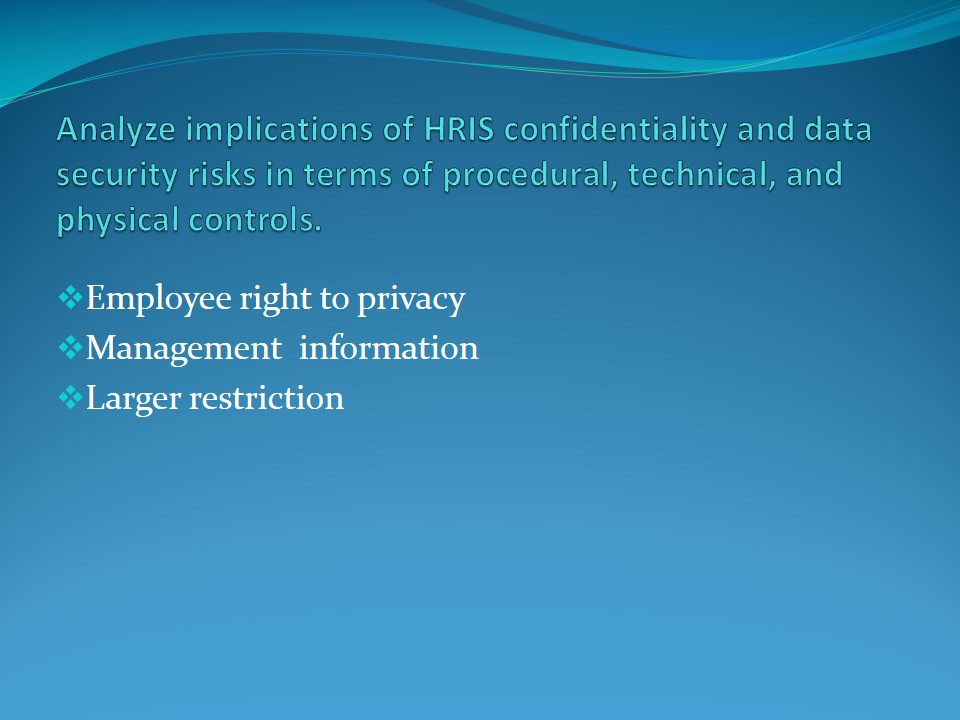
References
Ceriello, V. R., & Freeman, C. (1998). Human Resource Management Systems: Strategies, Tactics and Techniques Revised and Expanded Edition (2nd ed.). Hoboken, NJ: John Wiley & Sons.
Kavanagh, M. J. & Thite, M. (2009). Human Resource Information Systems. Thousand Oaks, CA: Sage Inc.
Walker, A. J. (2001). Web-Based Human Resources. New York: McGraw-Hill.